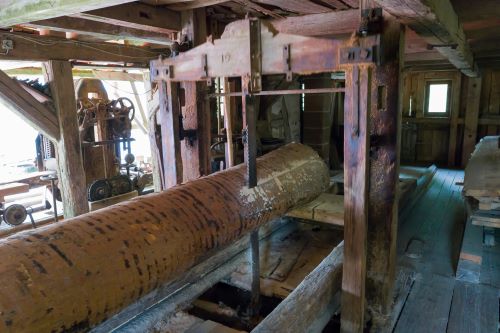 “History never repeats, I tell myself before I go to sleep” are the opening words of a well known Split Enz song. Unfortunately, there are enough historical events that tend to disprove this maxim.
“History never repeats, I tell myself before I go to sleep” are the opening words of a well known Split Enz song. Unfortunately, there are enough historical events that tend to disprove this maxim.
Felyx Hatherley, a three year old boy, died at Point Lumber in Timaru after a stack of logs rolled onto him in March 2016. WorkSafe later laid two charges against the lumber yard. In 2020 the company was convicted and ordered to pay fines amounting to $32,000.
That same company was back in the news in 2022 when a young worker, Ethyn McTier, was crushed to death after becoming trapped and crushed in a conveyor belt drive roller at the lumber yard. A WorkSafe investigation found that there was no guarding along the length of the conveyor belt to protect workers, and that a risk assessment had not been done. A range of other machine safety defects were also found onsite. It appears that company had also failed to follow a safety consultant's recommendation to safeguard the conveyor back in 2017.
Through emotional and grief-stricken victim impact statements read to the court at the sentencing hearing in May 2025, the McTier family described the enormous effect his death had on their lives. Judge Dominic Dravitzki acknowledged McTier's family's "real and raw" pain and thanked them for sharing their victim impact statements.
At the hearing Judge Dravitzki also heard that the company had made losses in recent years and that a large penalty would jeopardise its future. As a result, Judge Dravitzki decided not to hand down his final sentence until he had further details about the company's finances.
Earlier this month Judge Dravitski imposed penalties against the Point Lumber company amounting to $450,000 ($250,000 for the company, $60,000 for its sole director Sean Sloper, and ordering a further $140,000 to be paid to McTier's family).
In commenting on the case WorkSafe acting Regional Manager, Darren Handforth, said Mr McTier's death had similarities to another recent workplace death at the Ballance Agri-Nutrients plant in Mt Maunganui in July 2023 where Wesley Tomich was killed on a conveyor belt. Mr Handford said "endangering workers in this way is careless in the extreme, because these deaths were clearly preventable. In no way is it acceptable to be able to be killed at work on a conveyor belt".
Mr Handford noted that in March this year, WorkSafe had conducted 304 assessments in the manufacturing sector and issued improvement notices in 67 percent of cases. He said that it signalled the progress left to be made by that sector.
Mr Handforth implored the manufacturing sector to “seize these two deadly incidents as a watershed moment for health and safety. We implore businesses to ensure their machine guarding meets safety standards. If necessary, engage a qualified expert to ensure your machinery is adequately guarded to avoid inflicting further tragedy on other families."
And yet the government is proposing to alter WorkSafe’s priorities from enforcement to advice, it says to reduce the burden of health and safety compliance for businesses. The Minister for Workplace Relations and Safety, Brooke van Velden, wants WorkSafe to shift from a “safety at all costs mentality” to a focus on “helping duty-holders do what is proportionate to the risks” and “rooting out over-compliance”, whatever that means!
In 2023 the NZ Business Leaders’ Health and Safety Forum produced a report on workplace safety and the toll on New Zealand workers. It reported that our fatality rates are where the United Kingdom was in the 1980s. Our fatality rate is twice that it is in Australia.
It seems that the lessons of the Pike River tragedy where 29 workers lost their lives are being forgotten. The findings and recommendations of the Royal Commission that formed the basis of comprehensive health and safety reforms look like they are being dismantled. WorkSafe estimates remain frightening; 750 to 900 work-related health deaths a year; 5,000 to 6,000 hospitalisations each year due to work-related ill-health; and that a worker is 15 times more likely to die from a work-related disease than an actual workplace accident!
Mark Twain famously said “history doesn't repeat itself, but it often rhymes”. Events may not occur again in exactly the same way but there often are enough similarities to make it seem like “déjà vu”. In a practical sense, studying history can give us insights into present and potential future outcomes. Read more...

